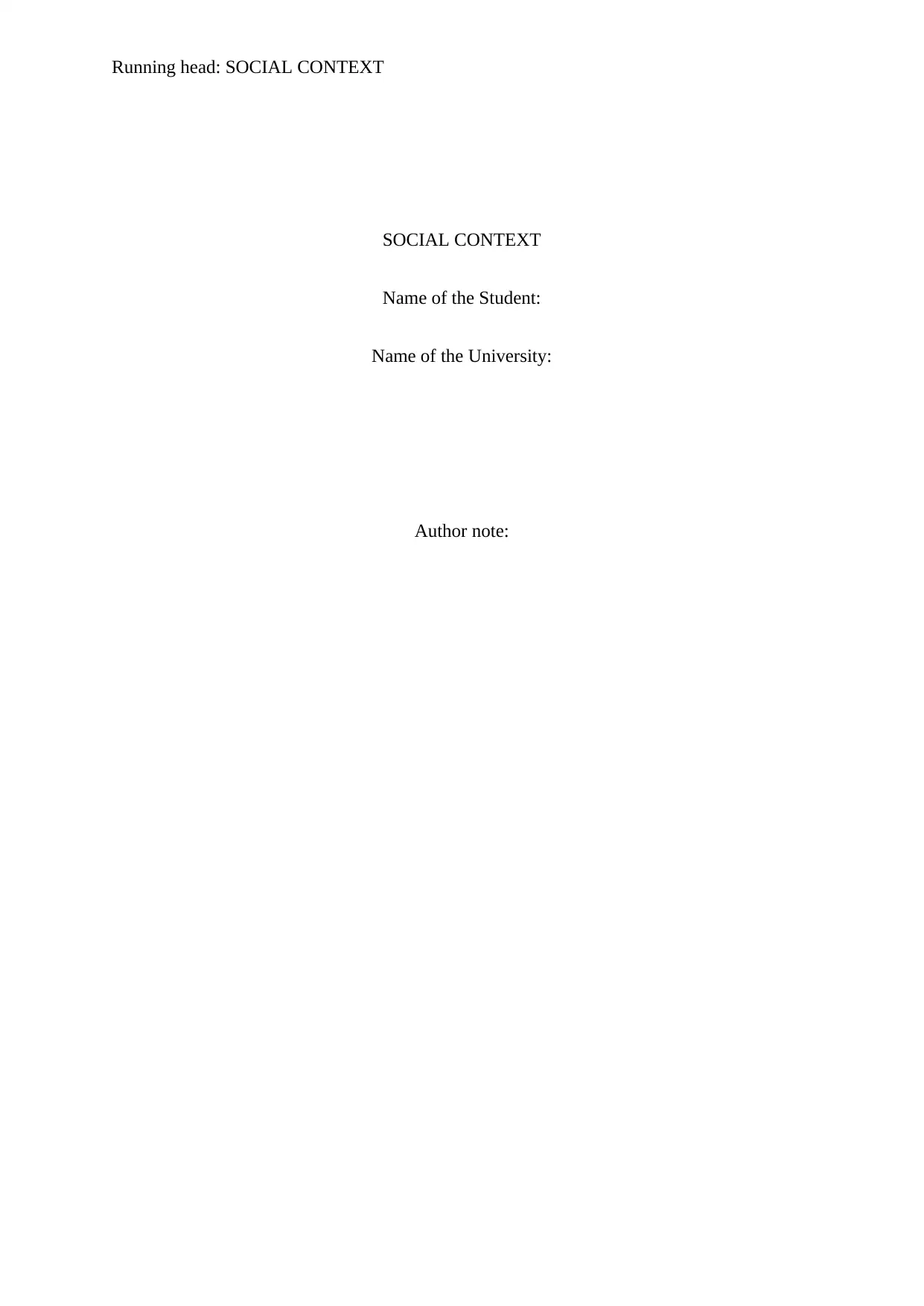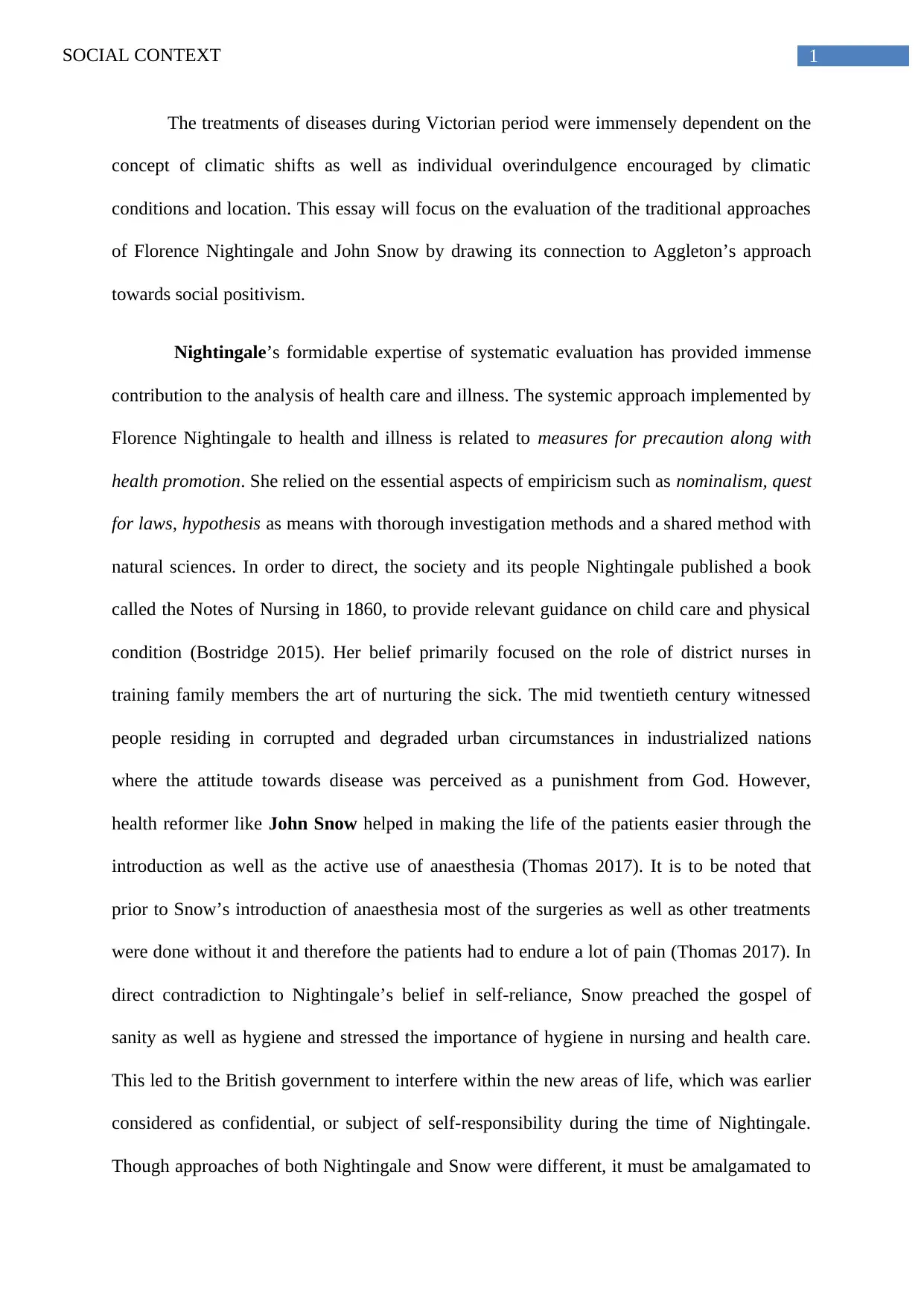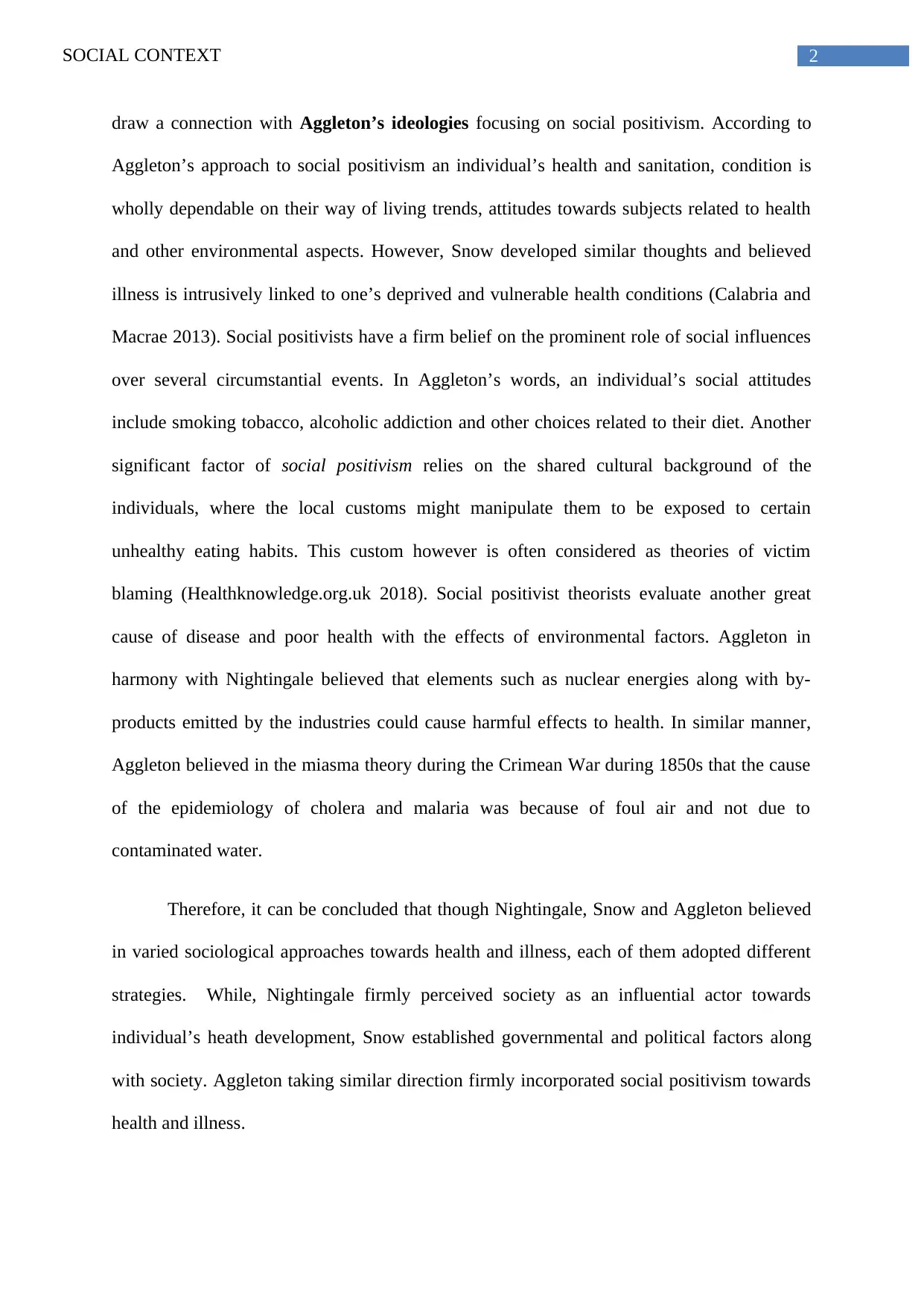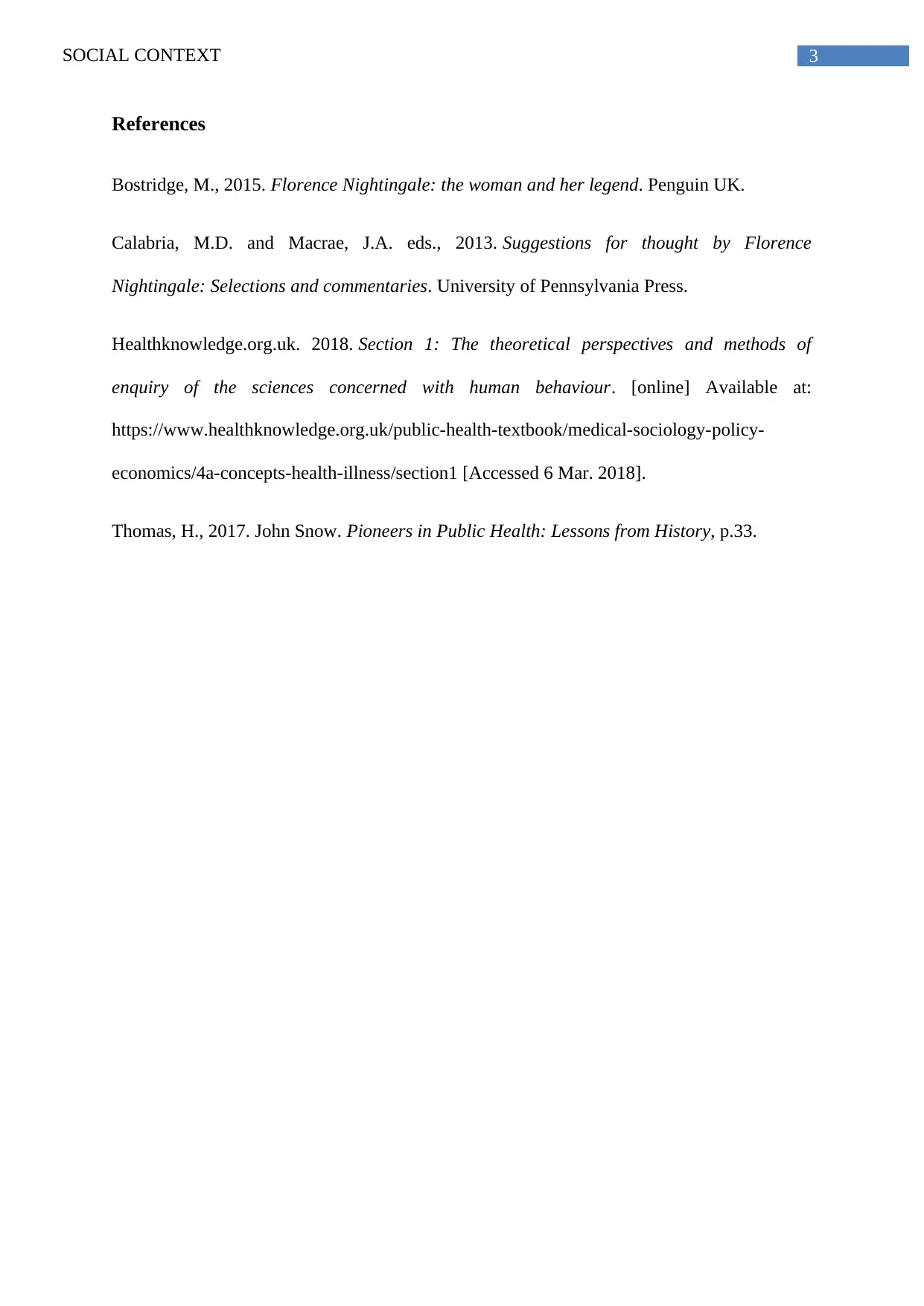Social Context: Approaches to Health and Illness Analysis
VerifiedAdded on 2021/04/24
|4
|829
|91
Essay
AI Summary
This essay delves into the social context of health and illness, focusing on the perspectives of Florence Nightingale, John Snow, and Aggleton. It begins by highlighting Nightingale's emphasis on systematic evaluation and her contributions to healthcare, including her reliance on empiricism and her guidance on childcare. The essay then contrasts Nightingale's approach with John Snow's advocacy for hygiene and governmental intervention, particularly in the context of Victorian-era urban conditions and the introduction of anesthesia. The core of the essay connects these historical figures to Aggleton's concept of social positivism, exploring how individual health is linked to lifestyle, cultural background, and environmental factors. The essay emphasizes how social positivism considers factors such as smoking, alcohol consumption, and environmental influences on health outcomes. It concludes by summarizing the different sociological approaches of Nightingale, Snow, and Aggleton, noting their varied strategies towards health and illness.
1 out of 4





![[object Object]](/_next/static/media/star-bottom.7253800d.svg)